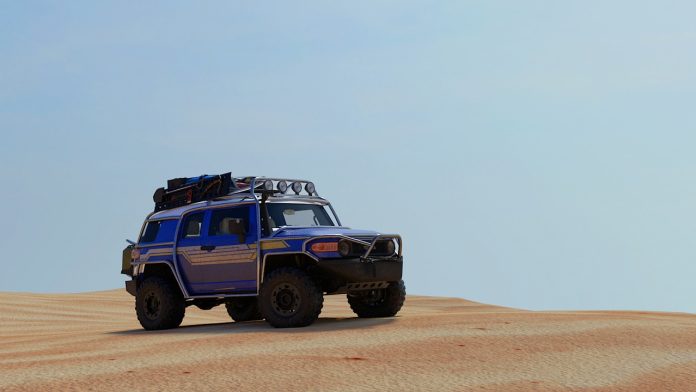Choosing an off-road vehicle can be an exciting but challenging task. With so many options available, it’s essential to understand which factors to consider before making your decision. Whether you’re into off-roading as a weekend warrior or a serious adventurer, this guide will help you navigate the complexities of finding the right vehicle to match your off-road needs.
Define Your Off-Roading Goals
Before diving into specific vehicle options, you need to clearly define how you intend to use your off-road vehicle. Off-road driving encompasses many different activities, such as:
- Trail Riding: Exploring dirt trails, forests, and backroads.
- Rock Crawling: Navigating rugged, rocky terrains at slow speeds.
- Mud Bogging: Driving through thick, sticky mud with deep ruts.
- Overlanding: Long-distance travel that includes off-road adventures.
Each of these activities demands different vehicle capabilities. For instance, a vehicle built for rock crawling may not perform as well on high-speed desert runs, while an overlanding vehicle needs storage capacity and comfort for long-distance trips. Clearly outlining your off-road goals will help narrow down the types of vehicles that will best suit your needs.
Understand Vehicle Types: SUV, Truck, or ATV?
Once you’ve identified your off-roading goals, it’s time to consider the various types of off-road vehicles available. Each type comes with unique advantages and drawbacks.
- SUVs: Sport utility vehicles are popular for off-roading due to their versatility, comfort, and cargo space. They often come with all-wheel-drive (AWD) or four-wheel-drive (4WD) capabilities, which are critical for off-road performance. Models like the Jeep Wrangler or Toyota 4Runner are excellent choices for moderate to difficult off-road terrains.
- Pickup Trucks: Trucks, such as the Ford Raptor or Toyota Tacoma, provide higher ground clearance and rugged durability, making them ideal for rock crawling, mud bogging, and towing equipment. Their open bed also offers extra storage for off-road gear and camping supplies.
- ATVs and UTVs: If you’re looking for something smaller and more maneuverable, all-terrain vehicles (ATVs) and utility task vehicles (UTVs) are great options. They excel at handling tight, narrow trails, and their lightweight structure makes them highly capable on difficult terrain. However, ATVs and UTVs lack the storage capacity and comfort for long overlanding trips.
Choosing the right type of vehicle depends on how you plan to use it, how much gear you need to carry, and what kind of terrain you will face.
Off-Road Capabilities: What to Look for
Not all vehicles are built equally when it comes to off-road performance. To pick the perfect off-road vehicle, you need to look for specific features and capabilities that will ensure the vehicle can handle rough, uneven terrain with ease.
Ground Clearance
Ground clearance refers to the height between the lowest part of the vehicle (usually the axle) and the ground. Higher ground clearance allows vehicles to pass over obstacles such as rocks and tree roots without damaging the undercarriage. Look for vehicles with at least 8-10 inches of clearance for off-road driving, though higher is always better for more rugged trails.
Four-Wheel Drive (4WD) vs. All-Wheel Drive (AWD)
4WD and AWD systems are essential for off-road vehicles. AWD provides power to all four wheels at once, which helps maintain traction on slippery surfaces. However, 4WD is often preferred for serious off-road enthusiasts because it can be engaged or disengaged manually, allowing for better control in tricky conditions like deep mud, sand, or rocky climbs.
Locking Differentials
Differential locks ensure that the wheels receive equal power, even if one or more wheels are off the ground or on a slick surface. Locking differentials are crucial for rock crawling and uneven terrain, where you may need all wheels to work independently to maintain forward momentum.
Approach, Breakover, and Departure Angles
These angles determine how well a vehicle can climb steep hills, cross obstacles, and descend without scraping the bumper or undercarriage. The larger these angles, the better your vehicle will be at handling rough terrain without getting damaged.
Engine and Power: Do You Need Extra Muscle?
When considering an off-road vehicle, engine power and torque are critical factors. Off-roading often involves slow, controlled driving over challenging terrain, which requires sufficient torque for low-speed maneuvers. For instance:
- Diesel Engines: Known for their high torque, diesel engines can be excellent for rock crawling and towing heavy loads. They are also more fuel-efficient over long distances, making them ideal for overlanding.
- Gasoline Engines: While gas engines offer less torque, they often provide higher horsepower, making them great for faster off-roading, such as desert driving or sand dunes.
Ultimately, the type of engine you choose will depend on your off-roading goals. For slow, methodical crawling, torque is more important. For high-speed runs, horsepower will take precedence.
Suspension Systems: Comfort and Control
A robust suspension system is a must-have for any off-road vehicle. The suspension system affects both your comfort while driving and your ability to tackle uneven, rocky, or hilly terrain.
- Independent Suspension: Vehicles with independent front and rear suspensions offer a smoother ride because the wheels can move separately, absorbing more shocks from rough terrain. This is ideal for general off-roading and overlanding.
- Solid Axles: Solid axles are generally better for extreme off-roading because they offer more durability and better articulation over rocks and steep inclines.
Upgrading your suspension with aftermarket shocks, lifts, and sway bars can significantly improve your vehicle’s off-road performance and make your ride more comfortable.
Tires: The Essential Upgrade
Tires are one of the most critical aspects of any off-road vehicle. You can have the best engine, ground clearance, and suspension in the world, but if your tires aren’t up to the task, your off-roading experience will suffer.
- All-Terrain Tires: These are great for general off-roading and offer a balanced compromise between on-road comfort and off-road capability. They can handle a variety of terrains, from mud to gravel, but may struggle in extreme conditions like deep sand or snow.
- Mud-Terrain Tires: If you plan to tackle muddy trails frequently, mud-terrain tires are a must. Their deeper treads are designed to grip slippery surfaces, but they can be noisy and uncomfortable on paved roads.
- Rock Tires: For serious rock crawlers, tires with reinforced sidewalls and extra tread protection are necessary to withstand sharp rocks and jagged obstacles.
Don’t Forget the Extras: Accessories and Customization
Finally, consider the aftermarket accessories and customizations that can enhance your off-roading experience. Some of the most popular additions include:
- Winches: Essential for pulling your vehicle out of deep mud or steep inclines.
- Skid Plates: Protect the underside of your vehicle from rocks and debris.
- Roof Racks: Great for carrying additional gear, like camping equipment and extra fuel.
- Lighting Kits: Extra lighting helps when off-roading at night or in low-visibility conditions.
Conclusion: Balance Capability with Comfort
Picking the perfect off-road vehicle involves balancing capability with your personal comfort and needs. By carefully considering your off-roading goals, vehicle types, critical features, and potential upgrades, you can find a vehicle that will deliver an incredible experience on the trails. Whether you’re an occasional off-roader or a serious enthusiast, the right vehicle will provide both adventure and reliability for years to come.
Happy off-roading!













